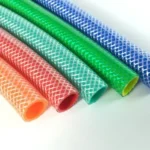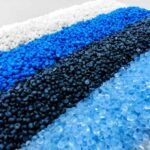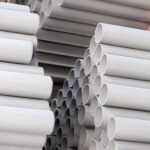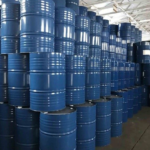
What Is A Polyurethane Sealant? Where And How To Use?
Polyurethane sealants are a versatile and durable solution widely used across various industries for bonding and sealing applications. Known for their exceptional flexibility, weather resistance, and adhesion properties, these sealants have become a go-to choice for professionals in construction, automotive, and manufacturing industries. In this blog, we’ll delve into the properties of polyurethane sealants, their advantages, and how to use them effectively. If you’re looking for high-quality polyurethane products, contact Emirachem for the best raw materials.
What Is A Polyurethane Sealant?
A polyurethane sealant is a type of adhesive sealant made from polyurethane polymers. It is designed to provide a strong, flexible, and durable bond between surfaces, making it an excellent choice for both bonding and sealing purposes. These sealants are moisture-curing and are available in one-component (ready-to-use) and two-component (requires mixing) formulations.
Key Properties of Polyurethane Sealants
Polyurethane sealants are renowned for their unique properties, which include:
- Flexibility and Elasticity: These sealants can expand and contract with temperature fluctuations, making them suitable for use in environments prone to thermal changes.
- Weather and UV Resistance:
Polyurethane sealants perform exceptionally well under harsh weather conditions, including rain, sunlight, and extreme temperatures. - Strong Adhesion:
They adhere to a wide variety of surfaces, including metal, wood, concrete, glass, and plastics. - Durability:
Once cured, polyurethane sealants form a resilient bond that resists wear and tear, ensuring long-lasting performance. - Waterproofing Capabilities:
Ideal for sealing joints and surfaces exposed to moisture, these sealants provide excellent water resistance.
Contact Emirachem for premium polyurethane sealants designed to meet the highest industry standards.
Where Are Polyurethane Sealants Used?
Polyurethane sealants are used in a variety of industries and applications, including:
1. Construction Industry
- Joint Sealing: Polyurethane sealants are widely used for sealing expansion joints in buildings, bridges, and pavements.
- Waterproofing: They provide excellent water resistance, making them ideal for sealing windows, roofs, and foundations.
2. Automotive Sector
- Sealing and Bonding: Used in assembling vehicles, sealing glass windows, and bonding metal parts.
- Noise and Vibration Reduction: Their elasticity helps dampen vibrations and reduce noise levels.
3. Manufacturing and Industrial Applications
- Assembly Lines: Used for bonding and sealing components in machinery and appliances.
- Electrical Encapsulation: Protects sensitive electrical components from moisture and dust.
4. Marine Industry
- Waterproofing: Polyurethane sealants are used to seal boat hulls, decks, and underwater fittings due to their water resistance.
5. DIY Applications
- Homeowners and handymen use polyurethane sealants for repairing leaks, sealing windows, and filling gaps in various household projects.
How To Use Polyurethane Sealants Effectively
Using polyurethane sealants effectively requires proper preparation and application. Here’s a step-by-step guide:
1. Surface Preparation:
- Ensure the surfaces are clean, dry, and free of dust, grease, and loose particles.
- Use a primer if recommended for the specific material.
2. Choosing the Right Sealant:
- Select a polyurethane sealant designed for your specific application, whether for construction, automotive, or DIY use.
3. Application:
- Use a caulking gun to apply the sealant evenly along the joint or surface.
- Apply steady pressure to ensure consistent flow and avoid gaps.
4. Smoothing and Finishing:
- Use a spatula or your finger (dipped in soapy water) to smooth out the sealant for a neat finish.
5. Curing:
- Allow the sealant to cure as per the manufacturer’s instructions. Curing times vary based on temperature, humidity, and the thickness of the applied sealant.
Tip: Always wear gloves and work in a well-ventilated area while applying polyurethane sealants.
Advantages of Polyurethane Sealants
- Versatility:
Suitable for a wide range of materials, including metal, concrete, glass, and wood. - High Performance in Extreme Conditions:
Polyurethane sealants maintain their properties in both high and low-temperature environments. - Cost-Effectiveness:
They offer long-term durability and reliability, reducing the need for frequent repairs. - Eco-Friendly Options:
Many polyurethane sealants are low in VOCs (Volatile Organic Compounds), making them environmentally friendly.
Contact Emirachem to source high-performance polyurethane sealants for your industrial or DIY projects.
Why Choose Polyurethane Sealants from Emirachem?
At Emirachem, we take pride in offering premium polyurethane raw materials that cater to diverse industry needs. Here’s why you should choose us:
- High-Quality Products:
We ensure that our sealants meet international standards for performance and durability. - Expert Support:
Our team provides tailored solutions and technical assistance to help you find the perfect product for your requirements. - Global Reach:
With a robust supply chain and adherence to Incoterms standards, we deliver products worldwide efficiently and reliably. - Sustainability Commitment:
We focus on environmentally friendly practices, offering low-VOC polyurethane sealants for a greener future.
Conclusion
Polyurethane sealants are a critical component in various industries, offering unparalleled durability, flexibility, and performance. Whether you’re sealing joints in a construction project or bonding components in a manufacturing line, polyurethane sealants deliver exceptional results.
If you’re searching for top-quality polyurethane raw materials, additives, or sealants, contact Emirachem today. With our expertise and dedication to excellence, we are your trusted partner for all polyurethane solutions. Let Emirachem help you achieve unmatched performance and reliability in your projects.

